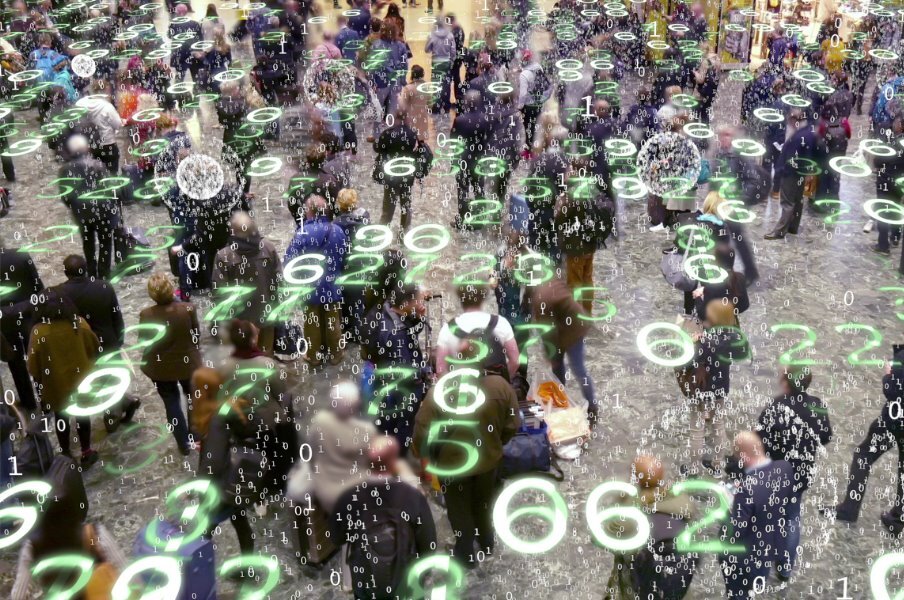Closing Regulatory Loopholes or Imposing Total Control? A look at China’s system of social credit

Algorithm-based scoring systems are becoming ever more widespread. An algorithm determines how well or poorly a person is evaluated, and, accordingly, what advantages that individual ought to enjoy or what punishments he or she deserves. Ratings are based on how people behave in traffic, their internet shopping, and their friends list on social media.
This scenario soon will be part of the everyday experiences of the Chinese people.
Five years ago, China’s State Council decided to prepare for the introduction of a centralized social credit system. In the next few years that system is supposed to be put in place across the entire country, although the government has not yet committed itself to doing so. For several years now, China’s government and big tech firms have been testing a variety of scoring systems designed to analyze not only the conduct of citizens, but also of business enterprises, organizations, and government offices. Officially, the social point system is intended to contribute to the development of a more honest, trustworthy Chinese society. But, more than anything else, the utilization of big data and access to the citizens’ personal data from practically every sphere of life marks an important step toward social control of the population.
For example, over 40 Chinese cities already are carrying out pilot projects for the government that rely on a point system to evaluate citizens and companies. These experimental systems are mandatory for local citizens and firms. That should be a familiar picture to some. Already there are public red and blacklists on which honest citizens or firms are lauded while dishonest ones are pilloried. In addition, giant tech firms like Alibaba and Tencent operate their own voluntary commercial social credit systems, which, for instance, can be used as cellphone apps. As the name itself makes clear, the various credit systems include not only economic but even social factors in their calculations. Someone who buys a lot of online games is judged to be less trustworthy than someone else who, say, buys baby diapers. By the same token, someone who is linked to dishonest people via the internet would end up with a lower score for that reason alone. Someone who donates for charitable purposes gets a higher social rating.
Although thus far no system has been put into effect across the entire country, even the test phase offers hints about how any such a scheme might affect society. With the intention of finding out how Chinese citizens react to the already existing social credit systems; I conducted an online survey of more than 2,200 Chinese along with separate interviews in 2018. The results generated some rather surprising insights. In Germany, the idea of an artificial-intelligence-based point system to evaluate people is considered tantamount to surveillance and a violation of basic democratic values. Consequently, most people find it worrisome and would reject it. By contrast, in China negative voices are in the minority. Based on my study, which is supposed to represent statistically all of China’s internet users, 80 % of the populace judged social credit systems to be very good or fairly good. At around 50 %, the share of those who approved of the system, calling it very good, was far and away the largest. A mere 1 % of respondents took a negative view, expressing opinions ranging from slight to strong disapproval, while the remaining 19 % were neutral. However, that last figure could indicate that, despite the extraordinarily high rate of positive feedback, at least one out of every five Chinese respondents is not convinced that the social credit point system is a good idea, or perhaps even takes a skeptical view of it.
Gamification with a bitter aftertaste
Considering how popular the social credit system is, it makes sense that a large number of survey participants indicated that they already had volunteered to take part in a scheme of that kind. Over 80 % use commercial programs, of which Sesame Credit is most people’s favorite, followed by Tencent Credit. Sesame Credit and other commercial point systems work like games. As in a computer game, one’s high score appears on the app, as do those of one’s friends. Also, signs of progress can be observed in the different evaluation categories. This sort of gamification – bringing game-like elements into a context that is not a game at all – subconsciously motivates users to try for higher scores and compete with friends to see who the top performer can be. This partly explains why so many people voluntarily subject themselves to the evaluation system. Nobody wants to pass up the new game. If your girlfriend has it, then you want it too.
7 % of the Chinese in my survey indicated that they were part of a government pilot project. But in fact, 43 % of them lived in one of the places in which a pilot project was ongoing. From that circumstance we may conclude that large portions of the Chinese population are not well informed about the topic. Likewise, it sheds light on the fact that the project is still in its initial phases and evidently has not attracted very much – if any – attention from the affected population. Pilot projects such as the one in Rongcheng in Shandong province are an exception. There, a point system has been used to evaluate each of the city’s citizens since 2014. That pilot project has become known internationally as the poster child of the new system.
Another surprising finding of my survey was that urbanites, especially, as well as population groups with the highest income and educational levels displayed the most enthusiastic approval of the social credit system. Here, one of the key elements of the point system comes into play: rewards in the form of premiums and advantages for good behavior. These can include discounts for rented bicycles, speeded up check-ins when flying or at a hotel and advantages when paying by mobile phone. The range of such potential benefits is greatest in urban areas. Thus, more socially privileged people, who often inhabit metropolitan areas, can benefit the most from the social credit system and thus are best situated to appreciate its positive aspects.
Nevertheless, a bitter aftertaste lingers. Why is there no outcry about the loss of the privacy and misuse of data, as one would expect here at home? That is another question that my survey was designed to answer. China’s banking sector long has suffered from structural problems. It was very difficult if not impossible to get credit. Companies such as Ant Financial, a subsidiary of the electronic trading platform Alibaba and developer of Sesame Credit, are helping to fill these institutional gaps in the Chinese system. Furthermore, the country repeatedly has been shaken by major food scandals, and the citizens suffer from environmental damage caused by industry. Because the social credit system also awards scores to business enterprises, many citizens expect that this system will lead to greater transparency and compliance with rules and regulations. In China, the downgrading of a firm’s point rating could ruin it. Three-quarters of the respondents to my survey stated that, in their opinion, Chinese society had a trust problem and that social credit systems would be a good way to tackle it. They were hardly concerned at all that their data might be misused by the government for surveillance purposes. Most were convinced that such data could be freely accessed by the Chinese intelligence apparatus anyway.
Although misuse of personal data has not been a major public concern in China so far, much of the Chinese population still places a high value on their own private spheres. More than half of the survey participants indicated that they had changed their attitudes toward privacy when using a commercial social credit system. Perhaps the general attitude toward data protection in China will change when ever more people begin to suffer the potentially painful consequences of negative scores meted out by the massive sifting of data. Those could include everything from setbacks in everyday life to actual punishments. Moreover, the ties between technology companies and the government as well as data transfers from the former to the latter someday may provoke a backlash among the populace. But so far, the prospects of the benefits to be gained by good behavior and the fair evaluation of all citizens and firms continue to set the tone of public opinion.
Here, it is interesting to observe that positive incentives evidently have a stronger effect on human behavior than the fear of negative consequences. This is likewise something that my 2018 study showed: The number of people who stated that they had modified their behavior to get a better rating exceeded the number who did so from fear of punishment or constraints. Yet, one conclusion is beyond dispute: Knowing that their own actions will be evaluated on a point system causes people to change their behavior.
Nearly all Chinese who knew that they were taking part in a government-sponsored pilot project acted differently in at least one respect than they would have otherwise. The response to commercial credit systems is somewhat weaker, but even here a majority of users deviated from their normal conduct. People participating in a government-sponsored point system volunteer or donate money more often. Those who use Sesame Credit or a similar app change their shopping and paying behavior. But in addition, it is not an uncommon reaction to the algorithms behind social credit systems for people to unfriend others (i.e., to cut off online relations with them on social media). 17 % state that they have already done so. And unsurprisingly, the dissemination of one’s own opinions or other content on the internet does not remain unaffected by social credit schemes.
Almost one out of every five Chinese has posted other things on the internet than he or she would have in the absence of such a system of evaluation in order to avoid a negative impact on his/her own social credit score. Thus, some tendencies are already evident today. This is a system that evaluates each person according to uniform criteria: those who don’t follow the rules are penalized, while those who live good and proper lives get rewarded. But it is also apparent that the system does not tolerate other opinions or bad friends. And it is a system that represents a country in which people bend over backwards to conform to the moral guidelines of the ruling party.
This article was originally published in NG|FH – Quarterly 1| 2020 – Volume 9.
About the Author
Genia Kostka is a professor of Chinese politics at the Free University of Berlin. Her research interests include digital transformation, environmental policy, and political economy in China.
About FES Connect
Connecting people, in the spirit of social democracy, we source and share content in English from the German and international network of the Friedrich-Ebert-Stiftung.





